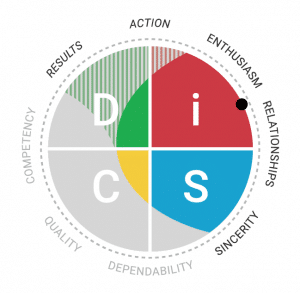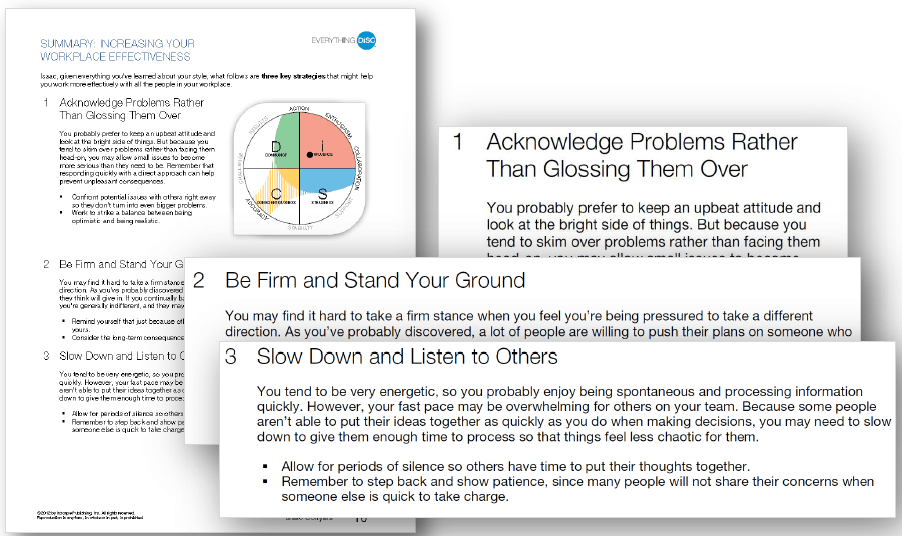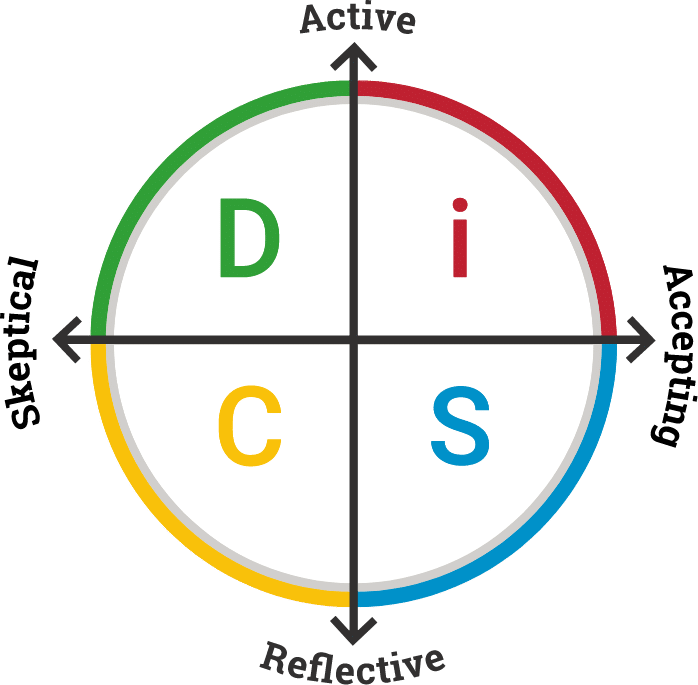Definition of DiSC
DiSC® is a personal assessment tool used to improve work productivity, teamwork, leadership, sales, and communication.
DiSC measures your personality and behavioral style. It does not measure intelligence, aptitude, mental health, or values. DiSC profiles describe human behavior in various situations—for example, how you respond to challenges, how you influence others, what is your preferred pace, and how you respond to rules and procedures.
 The DiSC model discusses four reference points:
The DiSC model discusses four reference points:
Dominance – direct, strong-willed, and forceful
Influence – sociable, talkative, and lively
Steadiness – gentle, accommodating, and soft-hearted
Conscientiousness – private, analytical, and logical
The DiSC® test instrument and the profile results are designed so that they’re easy to understand and recall your behavioral style and insights. The writing is engaging and the visuals are memorable. Facilitation resources are available to guide and reinforce learning.

History of DiSC
The DISC model of behavior was first proposed in 1928 by William Moulton Marston, a physiological psychologist with a PhD from Harvard. Later, others developed assessments based on this model.
The Everything DiSC® product family, launched by Inscape Publishing in 2007 and now published by Wiley, was created to make the DISC assessment even more valuable to its users. It introduced more highly personalized reports, customizable facilitation tools, and follow-up reports. Wiley continues to validate their DiSC assessments and conduct research related to personality.
The flavors of DISC
Have you seen DISC profiles for sale that seem different from each other? Is the difference more than a lowercase i? Yes. It’s important to know which assessment is actually under discussion. They are not all the same. When you see claims that millions of people have used DISC, don’t assume that millions have used the version you might be discussing or considering buying. Over one million people a year use an Everything DiSC assessment.
The various DISC tests vary greatly. The colors used, the survey instrument, and the reports all differ. And some providers of free versions will retain respondents’ email addresses for marketing purposes. Only Everything DiSC has the added measurement for priorities, which you’ll notice are reflected in the words around the outside of its circumplex map.
The DISC model is not protected by copyright. William Moulton Marston did not create an assessment tool himself, but others have referenced his model. Several academics and companies have used his work to create their own psychological inventories.
Why is i small and not capitalized in Everything DiSC?
The small i was a marketing decision used to distinguish DiSC Classic and Everything DiSC from other assessments or quizzes based on the DISC model. The uncapitalized i is part of the DiSC trademark held by John Wiley & Sons.


